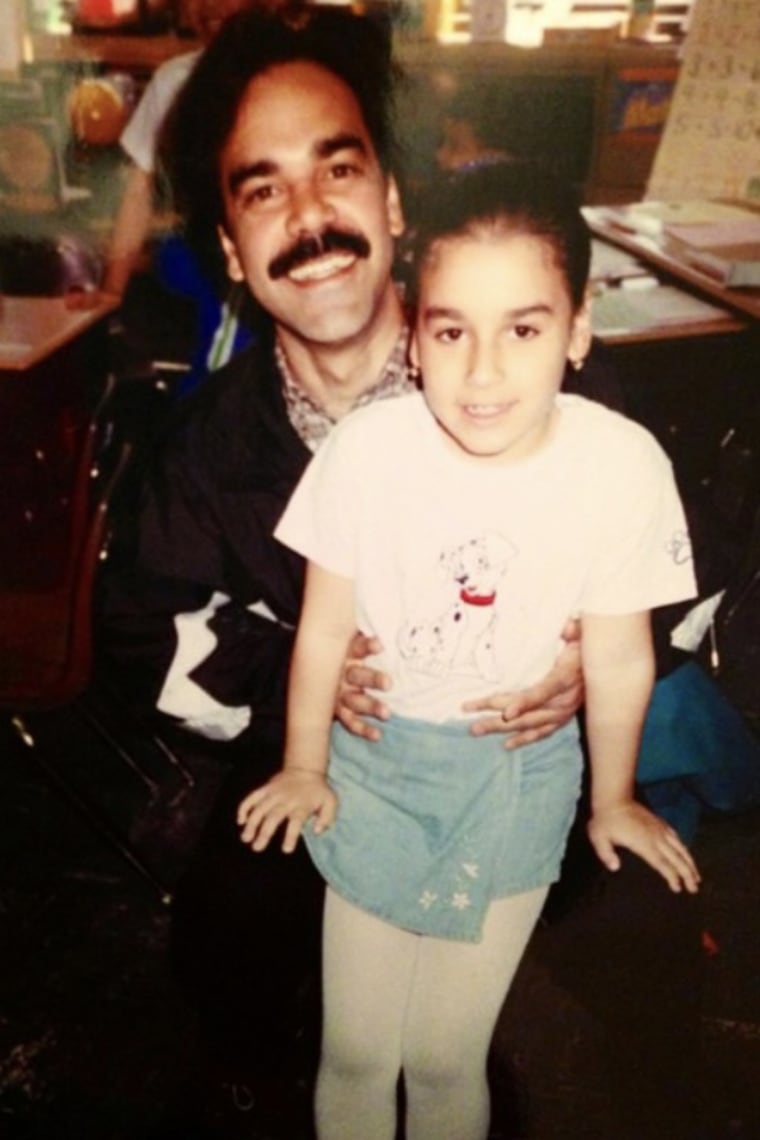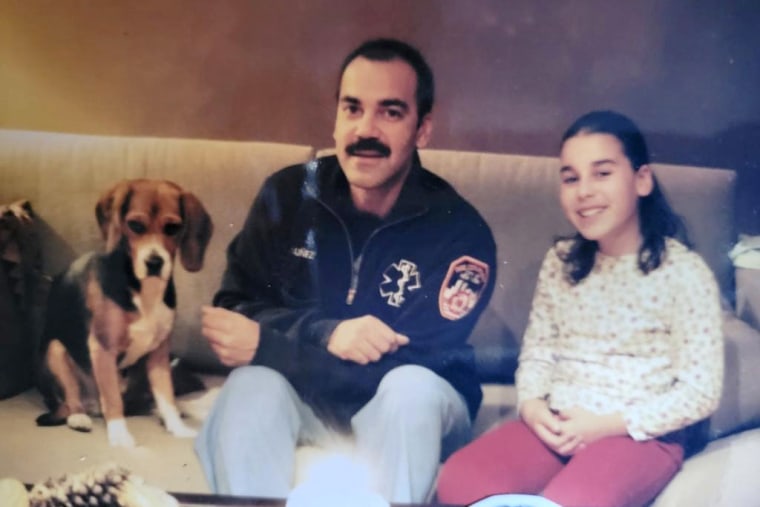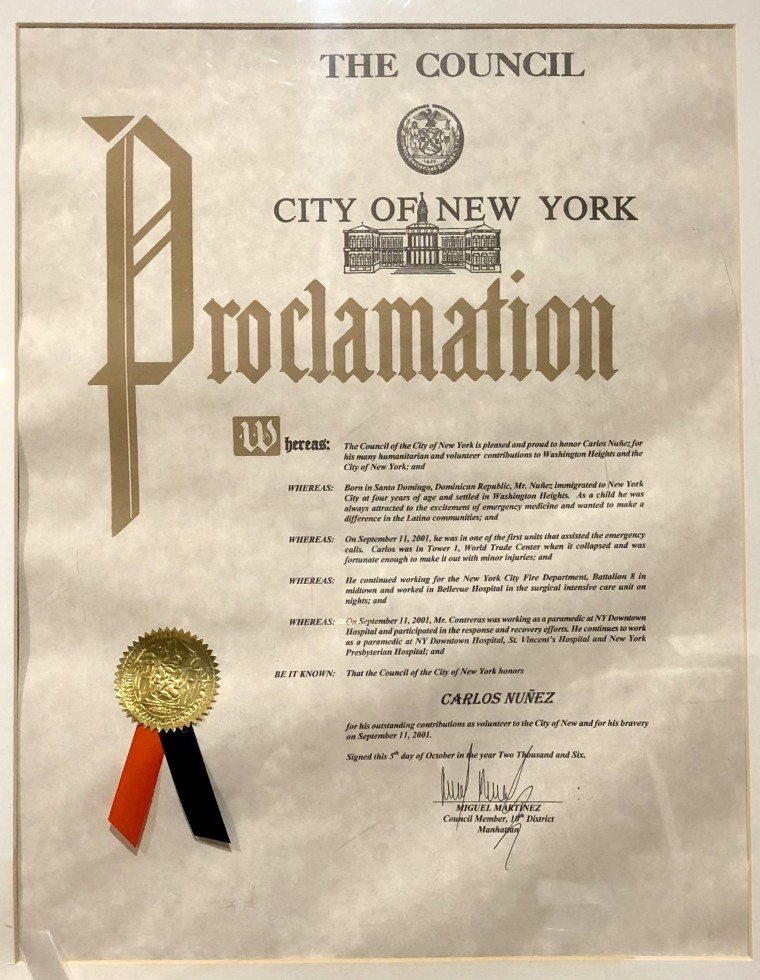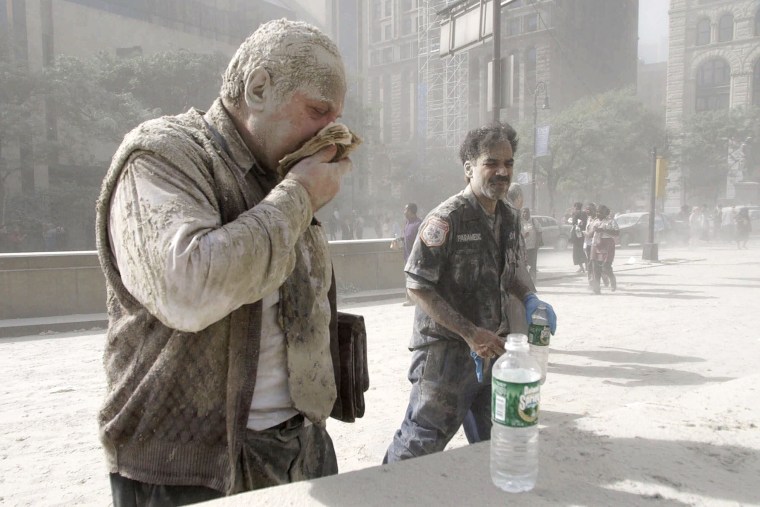It was Sept. 11, 2001. Twenty years ago, I remember the worst feeling — not knowing when, where, what or why, only that Dad was missing.
I went to school that morning; I was in fifth grade at a public elementary school in a quiet suburb of Long Island. A few hours later, many of my classmates were being pulled out of school by their parents. I remember thinking something was off.
By the end of the day, it was just three other students and myself in the classroom. It was a quiet day, and we barely had any work to do. I lived on the same block as my elementary school, so I remember the walk home.
Before I could even drop my backpack, my mom, not finding the words to tell me, sat me down and turned on the television. We didn’t have cable at the time, but through the static I saw the towers collapsing. The image was hard to make out at first; my mother desperately tinkered with the antenna on top of the TV.
It was our only source of information at this point to know what was happening. The same images were playing, over and over. Was this even real?
My mom just said, “Dad went there.”

The rest of the afternoon I was quiet. My mother ran around the house frantic and crying, on hold with all the hospitals in New York, trying to find him.
My dad was a paramedic in New York City, so he was often at the scene of tragic events. But nothing of this magnitude had taken place.
My mom would get bits of information from busy hospital workers that she managed to get on the phone. One employee at a hospital said there was a “Carlos” missing his leg, while another hospital said there was a “Carlos” with burns on over 80 percent of his body. It was past 4 p.m. and we still didn't have a clear answer.
My mother asked me to go to the playground down the block from where we lived with my friend Ashley, so she could “figure things out.” She promised me everything would be OK.
Ashley and I sat in our favorite spot, on top of the dinosaur jungle gym. I told her everything, including how scared I was. We cried together.
The following day, we finally got word. My father was OK. He was being treated for injuries at a hospital in Brooklyn.
After assuming the worst, I remember my heart and stomach fluttering. I was relieved and grateful to still have him in my life after seeing those harrowing images on television.
As I sat in the living room, staring out the window the next afternoon, his face slowly emerged from behind the front bushes of our house. I'll never forget the image of him coming up the front steps.
I didn’t recognize him at first. His entire head had been shaved because he required stitches, and he was wearing baggy clothes that weren’t his. It felt like an unknown man was walking up the steps. But it was him, and he was alive.
Accompanying him was a volunteer who had offered to drive him home. It would have normally been about a 40-minute drive, but all major roads and highways were closed in the area.

That day, my father leaned against the kitchen counter and recounted what happened as we sat in silence, listening.
He described the billowing, black smoke and the panic of people racing down the stairs of the south tower as he was going up. He spoke about the injuries, the falling debris, the soot and the dust that blanketed lower Manhattan.
My father and his team had arrived just after the first plane hit. He quickly realized this was bigger than anything he had experienced before. He called my mother to let her know he was going inside the tower, in case she didn’t hear from him again.
He and the other emergency medical services workers who arrived at the scene were instructed to set up a triage site on the second floor of the south tower. My dad described the hysteria, the initial burn victims they treated and those who couldn’t breathe. Shortly after, they were told to exit the building and reset the triage site just outside.
He remembered being in pitch black smoke when he was making his rounds back to the triage site. My dad suffered from a head injury and some bruises and burns.
It was hard to comprehend it all as a 10-year-old. How could this have happened?
My dad talked about his colleagues he hadn’t heard from. There were so many people still missing. He talked about three firemen he saw — or angels, as he called them — who paused and looked at each other for a moment before heading into the first tower. It fell minutes later, and my father believes the men knew they wouldn’t make it out alive. So many sacrificed their lives to save others.

It was hard to grapple with the loss of thousands of people. Dad and his family had emigrated from the Dominican Republic when he was 4 years old, and he had lived in the New York City area ever since.
In the Latino community alone, around 250 people were killed, including hospitality and restaurant workers — and first responders like my father.
As an adult, I can understand and see 9/11 differently. But for a long time after those first years, I couldn’t watch any videos or TV specials about 9/11. It was hard and, frankly, scary.
I think back to those first weeks and months after the attacks and how much we depended on the news. We were all looking for answers; my parents had the television on every single night.
My dad was still going back to ground zero every day to assist with the recovery. In the years that followed, any emergency calls he would respond to would bring him back to that day.
Recently, my father told me he had wanted to shield me from the pain he and so many others were feeling. Every anniversary, my dad said, he's tried not to think about it. He considers himself lucky.
“These last 20 years were a gift, I was able to see you,” he told me.
So many others didn’t get that chance to hold their loved ones again or tell them they love them.
First responders were on the front lines of horror, some literally sacrificing their lives. My dad’s story is not just one, but one of many. He’s my hero, and I’m so proud of what he did that day.
Knowing his story is a way I remember what happened on 9/11 and memorialize those we lost.
Our day 20 years ago could have ended much differently. I love you, Dad, always.
Follow NBC Latino on Facebook, Twitter and Instagram.
